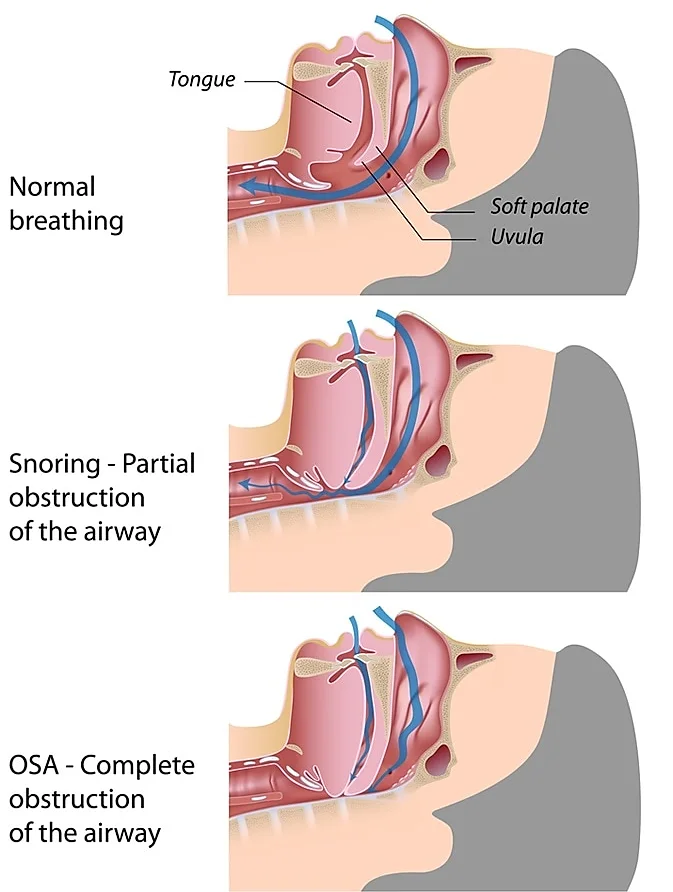Snoring and the cessation of breathing during sleep are very common warning signs of obstructive sleep apnea, the most common form of sleep related breathing disorders. Obstructive sleep apnea is a very serious disease that may have negative impacts on your cardiovascular and neurological systems. Your body is starved of oxygen during sleep due to an obstructed airway. People with this disease frequently wake up for brief periods at a time in order for the body to gasp for breath, interrupting the normal sleep cycle.
Prior to beginning any treatment, you should undergo a sleep study that is evaluated by a board-certified sleep medicine physician. If you have snoring without sleep apnea, your doctor may give you a prescription for an oral sleep appliance. If you are diagnosed with obstructive sleep apnea, your doctor will discuss treatment options with you.
The most common treatment for sleep apnea is continuous positive airway pressure (CPAP) therapy. The CPAP machine keeps your airway open by providing forced air through flexible tubing. CPAP therapy requires you to wear a mask as you sleep. Although CPAP therapy is effective, some people are unable to adhere to it. Patients unable to tolerate CPAP therapy or those who prefer an alternative treatment may be candidates for an oral appliance.
Many people like the oral appliance because it is comfortable, quiet, portable and easy to wear. Research shows that oral appliance therapy is an effective treatment option for snoring and obstructive sleep apnea. An oral sleep appliance is worn only while you sleep. In some severe cases of sleep apnea, upper airway surgery may be another treatment option.
If you and your doctor decide that oral appliance therapy is the best treatment option for you, then your doctor will write a prescription for you to receive a custom-made oral appliance from a dentist.
